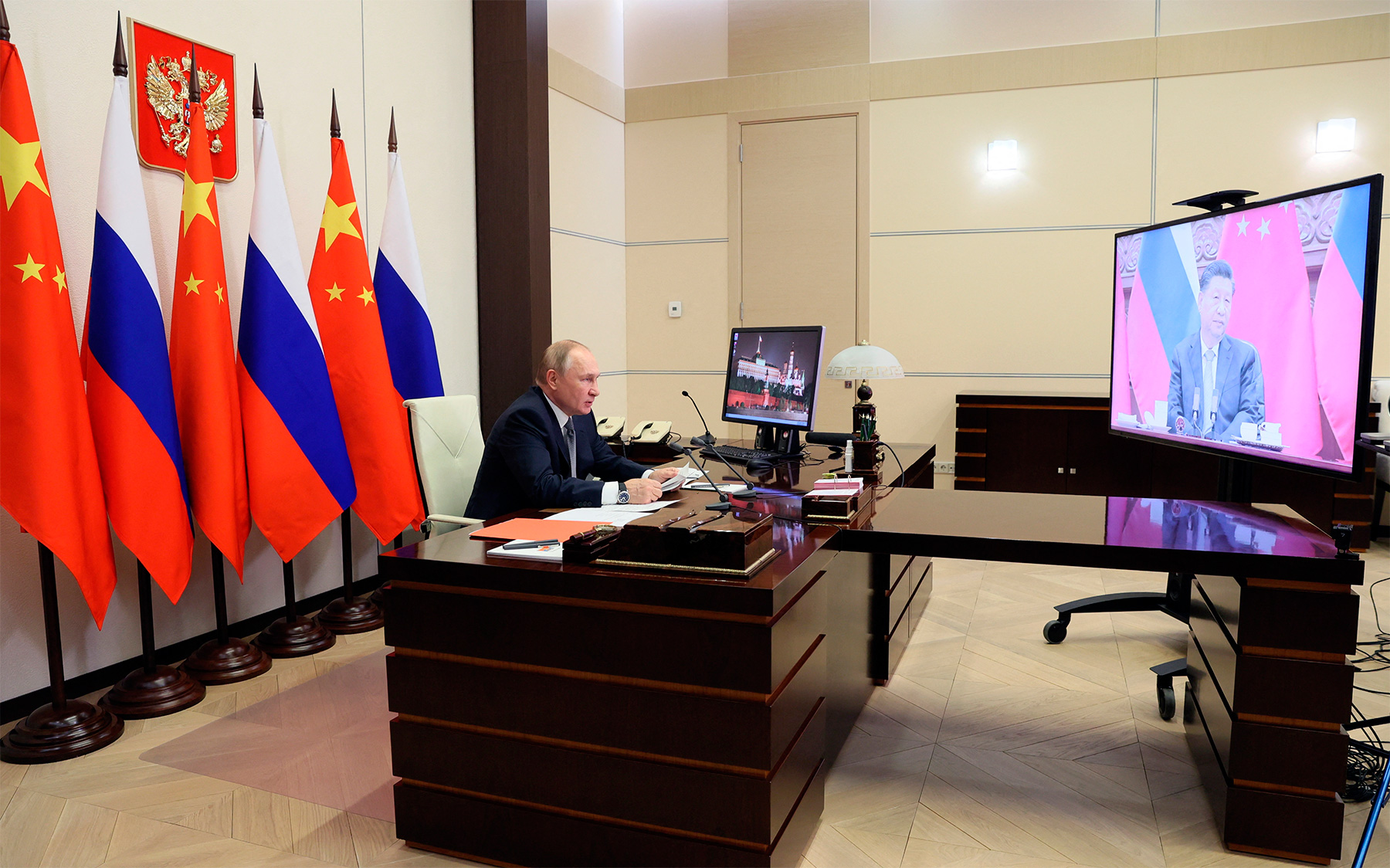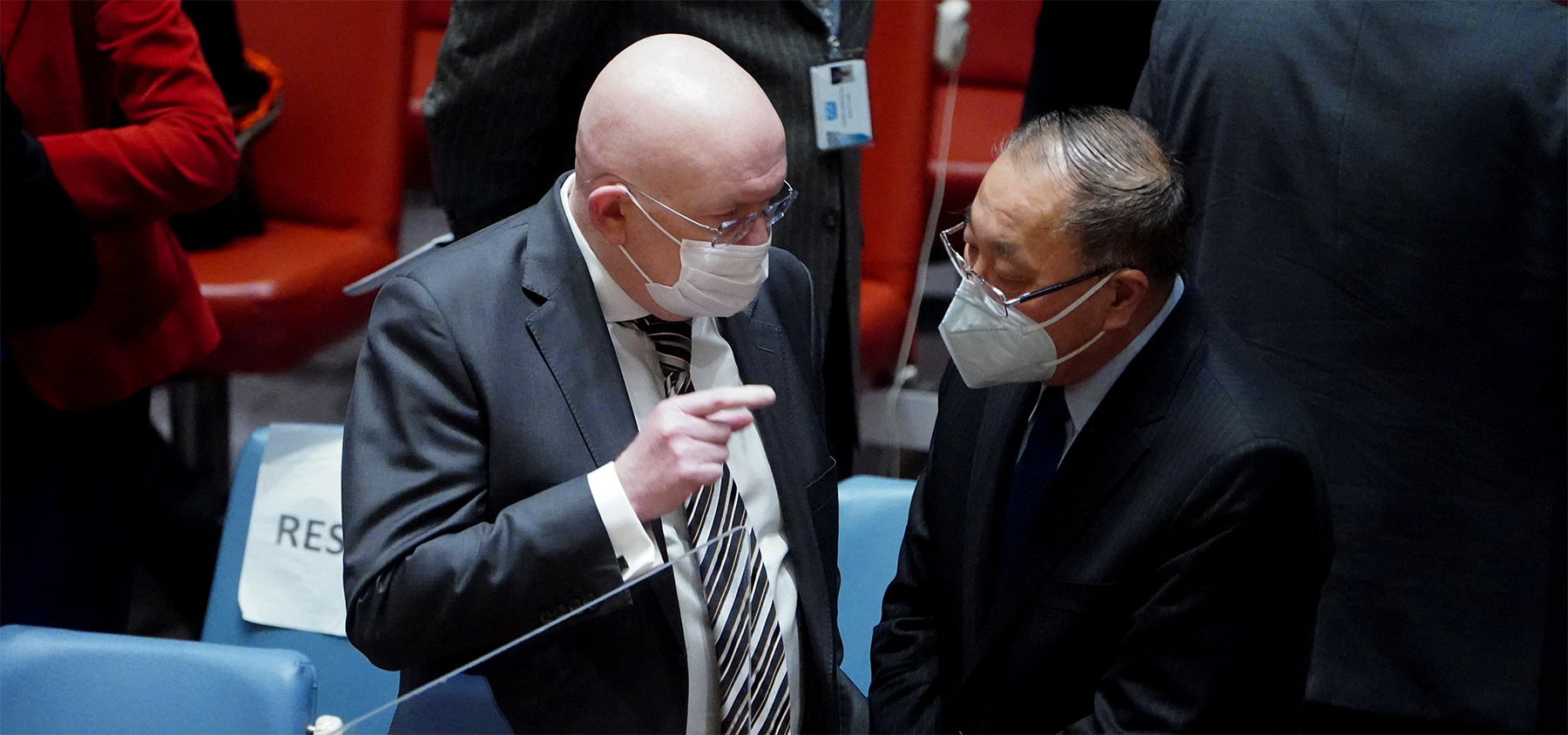Whenever I read another Western report on the prospects of Russian-Chinese relations, the old children’s fairy tale Little Red Riding Hood involuntary springs to my mind. It is clear that Moscow has to play Little Red Riding Hood, stupid and naive, while Beijing is a fierce and ruthless gray villain. The emerging friendship between the two inevitably entails most tragic consequences for the girl. This is to say, Russia’s economic, technological, military and otherwise dependence on China will over time grow to an extent that Beijing will be able to take advantage of this growing dependence by turning Moscow into its obedient and compliant vassal.
Still, when I come across the many Russian publications on the same interesting topic of bilateral relations with China, I can’t help but think of another well-known product of folk fantasy, the fairy tale Cinderella. A large number of Russian analysts, politicians and journalists seemingly perceive China as the modern incarnation of the fairy godmother, ready with her magic wand to solve all the numerous problems of modern Russia, quickly and painlessly. Multifaceted cooperation with China should allow Russia to avoid international isolation as much as enhance its status and influence in international affairs. Thus, despite all the machinations and intrigues of the envious and malicious relatives, Cinderella arrives at the royal ball in dazzling splendor and magnificence.
What is important, though, is the understanding of China. Whereas it emerges as absolute pure evil in Little Red Riding Hood, Cinderella rather portrays China as the embodiment of an equally absolute pure good.
However, the world of fairy tales and the world of international politics have little in common. No matter what anyone says about Vladimir Putin, he appears neither the naive and frivolous Little Red Riding Hood, nor the battered and hardworking Cinderella. If national sovereignty were a religion, the Kremlin could rightfully claim to be the cathedral of that religion. It is hard to imagine a situation where Vladimir Putin, or even one of his likely successors, would willingly sacrifice the country’s sovereignty and independence, even for the sake of promoting cooperation with China.
Perhaps even more importantly, modern China is ill-suited to the role of the hungry evil Wolf or the generous fairy godmother. The real China, in contrast to the imaginary one, is a vast and rather complex country, with its numerous and varied national interests, aspirations and priorities.
The numerous prophets hoping for an imminent crisis in Moscow-Beijing relations and going on to predict a conflict between the two should think about the various grave consequences of such developments, not only for Russia and China, but also for the rest of the world.
Nevertheless, Russian analysts and journalists should not flatter themselves, because no one will solve Russia’s own problems for it. No good wizard can turn a pumpkin into a carriage, mice into horses, and ash-soaked rags into a gorgeous ball gown. No generous fairy will shoe Russia in shimmering glass slippers, and no Prince Charming awaits Moscow at the magical royal ball.
Whenever I read another Western report on the prospects of Russian-Chinese relations, the old children’s fairy tale Little Red Riding Hood involuntary springs to my mind. In this well-known story, a little girl walks through a dense forest to bring cakes to her sick grandmother, unexpectedly stumbling upon an angry hungry Wolf. The light-hearted girl talks to the cunning Wolf, only to expose the purpose of her walk in the dark forest. Needless to say, this dangerous adventure cannot end well for Little Red Riding Hood: the insidious Gray Wolf eventually eats both the old sick grandmother and the tale’s main character.
With a little stretch of imagination, we can draw an analogy between the plot of this horror tale for kids and the West’s interpretations of the current relations between Russia and China. It is clear that Moscow has to play Little Red Riding Hood, stupid and naive, while Beijing is a fierce and ruthless gray villain. The emerging friendship between the two inevitably entails most tragic consequences for the girl. This is to say, Russia’s economic, technological, military and otherwise dependence on China will over time grow to an extent that Beijing will be able to take advantage of this growing dependence by turning Moscow into its obedient and compliant vassal.
While the fairy tale ends with the hapless Little Red Riding Hood set free from the wolf’s belly by the hunters who had arrived just in time, the real-life Russia cannot rely on a miraculous rescue. Moscow will have to accept the unpleasant status of an “outlying ulus” of the Middle Kingdom, with all the ensuing consequences for the Kremlin’s international ambitions. As President Vladimir Putin said on a slightly different occasion, “like it or don’t like it—it’s your duty, my beauty.” Unless prompt hunters (perhaps, the noble Americans and their faithful NATO allies?) eventually restore justice, bringing this story to a happy ending.
Still, when I come across the many Russian publications on the same interesting topic of bilateral relations with China, I can’t help but think of another well-known product of folk fantasy, the fairy tale Cinderella. It also tells the story of a young girl who is systematically mistreated and in every way abused by her ugly stepmother and heartless stepsisters. Fortunately, poor Cinderella is saved by her fairy godmother, who appears at just the right moment, generously dressing Cinderella for the upcoming royal ball. With one wave of her magic wand, the good fairy turns a pumpkin into a golden carriage, mice into horses, a rat into a coachman, and lizards into footmen. Cinderella’s filthy rags are miraculously transformed into a beautiful dress studded with jewels. For an additional gift, Cinderella receives glass slippers, which make the girl absolutely irresistible in the eyes of the local prince, who happens to be on the look-out for a suitable bride.
A large number of Russian analysts, politicians and journalists seemingly perceive China as the modern incarnation of the fairy godmother, ready with her magic wand to solve all the numerous problems of modern Russia, quickly and painlessly. They expect Beijing to vigorously oppose U.S. and EU anti-Russian sanctions, increasing purchases of Russian hydrocarbons and food at prices favorable to Moscow, providing Russia with critical technologies, and consistently supporting the Kremlin in all international organizations and multilateral forums. Multifaceted cooperation with China should allow Russia to avoid international isolation as much as enhance its status and influence in international affairs. Thus, despite all the machinations and intrigues of the envious and malicious relatives, Cinderella arrives at the royal ball in dazzling splendor and magnificence.
Moving on with this fairy tale analogy, we can argue about who the Prince Charming is in this case, and what fair punishment awaits Cinderella’s relatives in the end. The latter should obviously be understood as the notorious “Collective West.” In the end, all these details are not so important. What is important, though, is the understanding of China. Whereas it emerges as absolute pure evil in Little Red Riding Hood, Cinderella rather portrays China as the embodiment of an equally absolute pure good.
However, the world of fairy tales and the world of international politics have little in common. No matter what anyone says about Vladimir Putin, he appears neither the naive and frivolous Little Red Riding Hood, nor the battered and hardworking Cinderella. The Russian President remains one of the world’s most experienced state leaders. For more than two decades, he has consistently stressed the paramount importance of efforts to bolster Russia’s national sovereignty and independence. If national sovereignty were a religion, the Kremlin could rightfully claim to be the cathedral of that religion. It is hard to imagine a situation where Vladimir Putin, or even one of his likely successors, would willingly sacrifice the country’s sovereignty and independence, even for the sake of promoting cooperation with China.
Perhaps even more importantly, modern China is ill-suited to the role of the hungry evil Wolf or the generous fairy godmother. The characters of children’s fairy are inevitably one-dimensional, grotesque, and poster-like. In fact, they represent either absolute evil or equally absolute good, which is the intrinsic value of fairy tales passed down from generation to generation. They help children clearly distinguish good from evil, white from black, and justice from injustice. These fundamental differences, fixed in children’s minds, come to be one’s moral bearings, without which a person cannot do in adulthood.
In politics, however, this kind of one-dimensionality is a rare thing. The real China, in contrast to the imaginary one, is a vast and rather complex country, with its numerous and varied national interests, aspirations and priorities. Some happen to coincide with those of Russia, some overlap only partially, while others diverge altogether. Therefore, it would be hardly fair to define Beijing’s foreign policy as “pro-” or “anti-Russian,” since they have always been and will primarily be “pro-Chinese.”
There is no doubt that Russia and China currently converge in their approaches to a number of critical issues of international security and development. Such unity is historically justified as it reflects the current geopolitical landscape in the international system. A convergence of interests forms a solid foundation for long-term mutually beneficial cooperation between the two countries. It is to be hoped that the relations between the countries will remain dynamic, acquiring new and important dimensions over time.
Far from our two countries only, it is the international system at large that stands to benefit from a stable, predictable and sustainable Russian-Chinese partnership. The numerous prophets hoping for an imminent crisis in Moscow-Beijing relations and going on to predict a conflict between the two should think about the various grave consequences of such developments, not only for Russia and China, but also for the rest of the world. Tactically, many countries could probably take advantage of a Russian-Chinese rupture. Strategically, though, another tectonic split in the international system would not serve the interests of any of the responsible actors in world politics.
Nevertheless, Russian analysts and journalists should not flatter themselves, because no one will solve Russia’s own problems for it. No good wizard can turn a pumpkin into a carriage, mice into horses, and ash-soaked rags into a gorgeous ball gown. No generous fairy will shoe Russia in shimmering glass slippers, and no Prince Charming awaits Moscow at the magical royal ball.
Russia should fight corruption and mismanagement, the overreach of officials, and oppression of small businesses, all on its own. The country should invest in human capital, promoting its innovation sector, introducing full-fledged federalism and local governance, increasing the efficiency of the court system at all levels, and unleashing the creative potential of Russian society to its fullest. The faster and further Russia advances these goals, the more valuable a partner it will become—both for China and other foreign countries. This, in turn, means that the current crisis in the Russia-West relations should become another incentive to speed up the socio-economic modernization of the country, rather than slack or freeze it.
First published in GlobalBrief.







